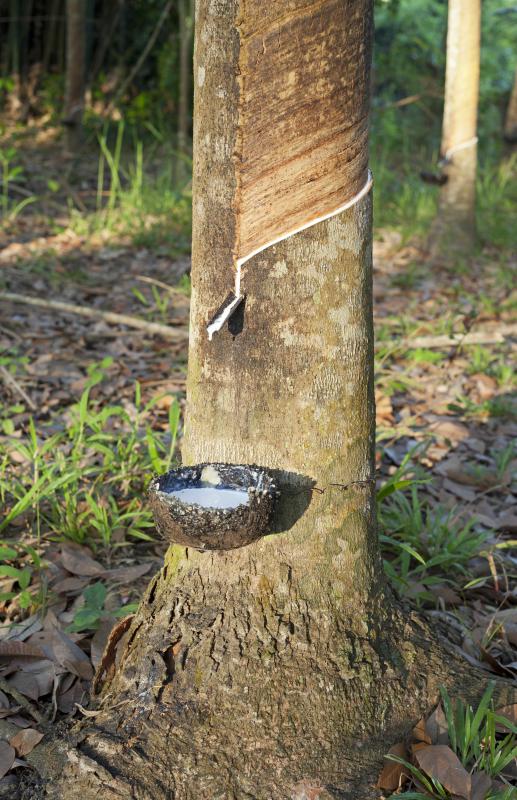At WiseGEEK, we're committed to delivering accurate, trustworthy information. Our expert-authored content is rigorously fact-checked and sourced from credible authorities. Discover how we uphold the highest standards in providing you with reliable knowledge.
What Is a Byproduct?
A byproduct is a secondary material produced as part of a manufacturing process. Some byproducts may be usable in new products, while others are waste materials which require separate processing and safe disposal. Companies tend to limit waste byproducts, as they do not want to spend money on disposal because this can add to production costs. Some come up with creative ways of selling materials traditionally viewed as waste in order to streamline manufacturing processes.
It can be difficult to manufacture something without creating byproducts along the way. For example, in rice processing, the inedible outer hulls are removed. These represent a byproduct which the company must either use or discard. Some uses for rice hulls include mulch, insulation, fuel for power plants, and engineered wood products. Firms may be able to sell their hulls, turning them into a valuable part of the process instead of an unwanted byproduct.

Some byproducts are hazardous. Chemical reactions, nuclear fuel processing, and similar activities may generate byproducts that cannot be used or sold as part of the original product. They are also too dangerous to market on their own. Instead, the manufacturer must process and dispose of them in a safe way. This can create issues like pollution if companies do not secure their waste products adequately during the production process.

Companies that use processes known to generate byproducts may periodically reevaluate them to determine if it is possible to cut down on excess or find new ways to use these materials. Streamlining processes may involve the development of new products and services based on byproducts. An example can be seen with corn, where numerous byproducts may be produced during handling. Most of these can have a secondary use; cornstarch, for example, is a byproduct used in food preparation and other activities.
Efficiency can be a concern for many industrial processes. The generation of a byproduct may be indicative of waste and it could be possible to cut down on the waste by changing the process. When this is not an option, the company can turn to new ways to use byproducts. Companies capable of repackaging and selling their secondary products may realize significant profits from these sales.
Environmental regulations cover byproducts known to be hazardous. If possible, they may need to be processed to neutralize them. In cases where this is not an option, the company must adequately contain and secure them. Mining, for example, results in the generation of toxic tailings that need to be controlled in appropriate containers or reservoirs to prevent environmental pollution.
AS FEATURED ON:
AS FEATURED ON:












Discuss this Article
Post your comments